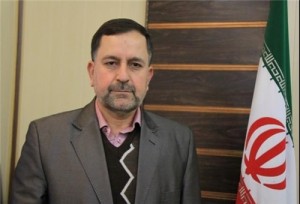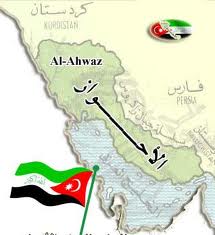 Iran’s security forces have thwarted a bomb attack on a strategic oil pipeline in the southwestern Khuzestan province, semi-official Fars news agency reported on Sunday.
Iran’s security forces have thwarted a bomb attack on a strategic oil pipeline in the southwestern Khuzestan province, semi-official Fars news agency reported on Sunday.
“The security forces vigilantly discovered and thwarted a bombing plot against Abadan-Mahshahr oil pipeline on Saturday evening,” Abadan Governor Bahram Ilkhaszadeh said.
The Iranian security forces received a tip-off on Saturday that a bomb attack on the oil pipeline is underway, Ilkhaszadeh said, adding that the thwart operation was conducted without causing any casualties.
Khuzestan province is the home of ethnic Iranian Arabs and, over the years, it has been the scene of armed clashes between Iranian security forces and the Arab separatist groups.
Under Persian “occupation”
 Arab insurgents blew up a gas pipeline in Iran last August and dedicated the attack to their brothers in arms in Syria, highlighting how the Syrian civil war is spreading into a region-wide proxy conflict that could blow back onto Iran.
Arab insurgents blew up a gas pipeline in Iran last August and dedicated the attack to their brothers in arms in Syria, highlighting how the Syrian civil war is spreading into a region-wide proxy conflict that could blow back onto Iran.
The blast, two days after new President Hassan Rohani took office, hit a pipeline feeding a petrochemicals plant in the city of Mahshahr in Iran’s southwest, home to most of its oil reserves and to a population of ethnic Arabs, known as Ahwazis for the main town in the area.
The Ahwazi Arabs are a small minority in mainly ethnic Persian Iran, some of whom see themselves as under Persian “occupation” and want independence or autonomy. They are a cause célèbre across the Arab world, where escalating ethnic and sectarian rivalry with Iran now fuels the wars in Syria and Iraq and is behind political unrest from Beirut to Bahrain.
Tehran dismisses any suggestion that discontent is rife among its Arab minority, describing such reports as part of a foreign plot to steal the oil that lies beneath its Gulf coastal territory.
There has been unrest in the area for many years, and now some Ahwazis see themselves as part of a larger struggle between Shi’ite Iran and the Sunni-ruled Arab states across the Gulf, which back opposing sides in the Syrian civil war.
Although the bulk of Iran’s 137 billion barrel oil reserves lie beneath the soil of Khuzestan, most Ahwazis struggle to scratch a living off the land they lay claim to.
“We get nothing from the oil and gas fields except smoke (from the refineries),” said activist Taha al-Haidari, in footage filmed secretly in prison before he was executed along with two of his brothers and a friend.
Although the overwhelming majority of Ahwazis are Shi’ites, some say they sympathize with the mainly-Sunni rebels fighting Syria’s Iran-backed President Bashar al-Assad.
“Our land is occupied and the Syrian people are in the shadow of a dictatorial regime that serves Iranian interests in the region,” said an Ahwazi activist speaking from inside the region. “If Bashar falls, Iran falls: that is the slogan of the Ahwazis,” he said. The slogan shows how events in Syria are stirring a latent threat to stability in one of the world’s most resource-rich corners: the Iranian province of Khuzestan, once known as Arabistan for its Arab majority.
Although the bulk of Iran’s 137 billion barrel oil reserves lie beneath the soil of Khuzestan, most Ahwazis struggle to scratch a living off the land they lay claim to.
“We get nothing from the oil and gas fields except smoke (from the refineries),” said activist Taha al-Haidari, in footage filmed secretly in prison before he was executed along with two of his brothers and a friend.
Xinhua/ Reuters
Top photo: Abadan Governor Bahram Ilkhaszadeh

Leave a Reply
You must be logged in to post a comment.